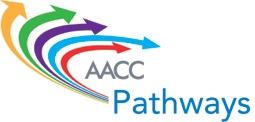Past project — Conducted September 17, 2015 - April 30, 2020
Building Capacity for Reform at Scale in the Community College Field
A decade of intensive focus on improving student success in community colleges has produced notable effects: a dramatic increase in awareness of the challenges and in commitment to college completion as a critical goal; a sea change in the use of data to assess and monitor student success and institutional performance; a growing body of evidence regarding effective educational practice in community colleges; and increasing numbers of institutions that are putting that knowledge into practice and demonstrating encouraging results. These promising developments can be attributed to the unprecedented efforts of a collection of philanthropies, national organizations, state systems, and institutions that have worked both collectively and individually to investigate practice, implement change, and produce results.
Now, there is a striking convergence of research and lessons of experience, as these people and their organizations have come to the shared understanding that progress, while evident in some places, is too slow; that the favored solutions of the past decade, while often necessary components of change, do not adequately address the magnitude of the challenges community colleges and their students face; and that typically, the changes thus far achieved have not been fundamental enough—and certainly not scaled enough—to achieve the improvements in completion of college credentials with strong labor market value, especially among low-income students and students of color, that are necessary to reclaim the American Dream.
Recognizing these realities—and affirming the critical role of America’s community colleges, the American Association of Community Colleges (AACC) has undertaken, with generous funding from Bill & Melinda Gates Foundation, a national project focused on building capacity for community colleges to design and implement structured academic and career pathways for all of their students. Building on emerging research and experience in the field, the Pathways Project reflects AACC’s commitment to follow through strategically on recommendations set forth in the 2012 report of the 21st-Century Commission on the Future of Community Colleges, Reclaiming the American Dream, and the 2014 implementation guide, Empowering Community Colleges to Build the Nation’s Future.

National Partners
Key national partners in the project are Achieving the Dream, Inc., the Aspen Institute, the Center for Community College Student Engagement, Community College Research Center, Jobs for the Future, the National Center for Inquiry and Improvement, and Public Agenda.
The Pathways Institute Series
The project will build a model series of six institutes, each 2.5 days in length and each engaging five-person teams of varying composition from a selected group of 30 colleges. All will support committed community colleges in work to design and implement clear, structured student pathways to high-quality credentials that are aligned both to university transfer and to jobs with value in the labor market. Designated college teams will attend the six institutes during the grant years of 2015-2018, and each event will focus on a critical aspect of institutional change and pathway design/implementation; each will require advance work by the colleges, and each will result in products developed by the participating college teams, including action plans and assessment of needs for technical assistance. The institute format will combine discussions with experts, technical assistance, and facilitated discussion/planning sessions for college teams.
College Participation
The institute series will involve, through a competitive application process, AACC member colleges that demonstrate serious commitment to transformational work at scale to improve college completion and equity in student outcomes. In the selection process, priority will be given to colleges located in focus states for the Bill & Melinda Gates Foundation: CA, FL, GA, KY, NC, NY, OH, TN, TX, and WA. Ideally, a number of colleges from other states also will be selected to participate. Colleges will receive no direct funding; but most on-site costs of institute participation (i.e., materials, coaching, hotel rooms, refreshment breaks, and most meals) will be covered by the project budget. The college will be responsible for travel expenses for a five-person team, including airfare, ground transportation, parking, and non-institute meals.
Knowledge Development
In addition to providing direct support to college teams, the project aims to build knowledge in the field that will lead to broader and better adoption of the pathways reforms. Accordingly, participating colleges will (1) collect, monitor, and report data on selected metrics depicting student connection, progress, and completion; and (2) participate in evaluation of the institute series. In addition, the project will support student focus groups at several of the colleges, providing authentic voices and video documentation that enrich understanding of quantitative data. Systematic interviews conducted with individuals at project colleges will contribute to the existing knowledge base about institutional change, particularly through the process of implementing guided pathways at scale. The additional pathways items that the Center will administer during SENSE 2018 and CCSSE 2019 and the national report that the Center will disseminate in spring 2020 based on the results of those items will explore the impact of the guided pathways movement at the national level. Finally, the project partners will develop open-source resource materials for broad use by community colleges.
Achieving Scale
The project focus is design and testing of an approach that can be replicated with additional groups of institutions. A further outcome will be expansion of the available pool of experts qualified to provide technical assistance to colleges as they undertake pathway design and implementation. The institute series will be implemented during the grant years of 2015-2018 with 30 colleges; then, with the benefit of thorough evaluation and related improvements, the institute models and related tools and resources will be made available to Achieving the Dream, state-based student success centers, and perhaps other organizations that can replicate the series, supporting pathway design and implementation at much greater scale across the community college field.
